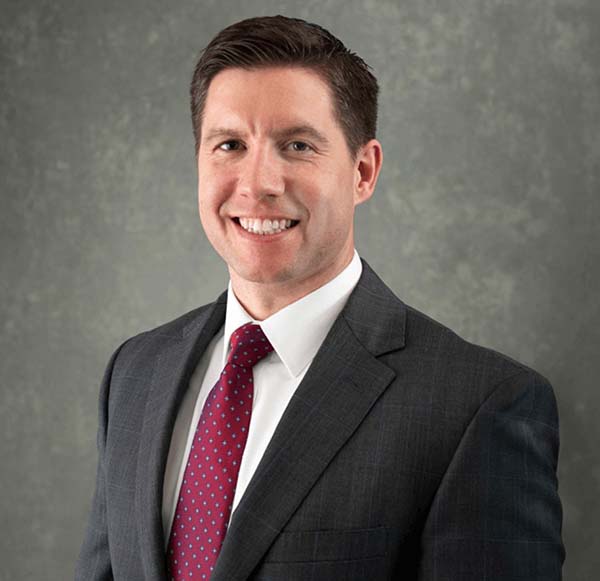Editor’s Note: The following is a guest post from Justin Nabity, the founder and CEO of Physicians Thrive.
Physicians are good at a lot of things, especially caring for patient health. That being said, doctors often fall short in matters that don’t involve modern medicine. Money matters, for example, are one of the biggest pain points for physicians all over the world.
The medical field is awash with financial taboos and downright misinformation. While physicians are great at healing, money management is a topic that is often too complex for them to parse. Let’s take a closer look at some of the most common money myths found in the medical field today and the truths behind them.
8 Money Myths In The Medical Field
Do doctors make mistakes when it comes to money? Unfortunately, it’s more common than many realize.
There is a lot of misinformation floating around that can lead doctors to make financial choices that are not in their best interest. Our goal is to identify and debunk many of these common money myths that can lead to financial ruin.
Below we will cover:
- Employer Contribution Myths
- Career Potential Myths
- Altruism Myths
- Myths About Doctor Burnout
- Myths Surrounding Self-Worth Valuations
- Myths About Student Loans
- Stock Investment Myths
- Myths About Retirement Savings
Plus, we will discuss how to maintain financial competence as a physician and when to seek additional earning opportunities.
Myth #1 – Employers Don’t Contribute Enough
Physicians who have high incomes tend to have a harder time figuring out how to build their wealth. One of the most common money myths is that employers simply won’t have enough retirement support to help physicians grow their savings. While this may seem accurate on the surface, the truth is much simpler.
Employer Contributions Debunked
Doctors are often provided with a 457, HAS, and 401K matching plan by their employer.
However, due to how much they make, there will still be money left over for investments. Doctors who make too much are not being under-supported, but rather they are out earning the available programs.
The best solution is to find other taxable investment options such as real estate or a diversified investment portfolio.
Myth #2 – Working In Medicine Isn’t Profitable

Going into medicine is an arduous journey.
Not only are years spent studying the craft, but student loans also make saving for the future more complex. Interns and entry-level doctors do have a lot of liabilities that can lead to a life of almost poverty at the outset, but it’s not a permanent state of being
Getting rich as a medical professional isn’t easy, but it also isn’t impossible.
Career Profitability Debunked
Doctors are among the top 5% of earners in the United States. On the global stage, medical professionals are among the top 1% of calculable earners.
With the average doctor earning a base salary of $200k per year, there is no reason that a life of financial security is not achievable. Any medical professional making $200k annually that invests at least 20% of their income should be able to build lasting wealth and financial freedom.
Myth #3 – Practicing Medicine Is Its Own Reward
Often doctors and other medical professionals will proclaim that helping patients is the true goal of medicine. While helping patients is a big part of being a doctor, money also plays a big part in choosing this profession.
Many doctors are at the top of their fields but are not happy with their pay packages. At the same time, there are many with lucrative private practices that care just as much as those who earn less.
Altruism Myths Debunked
It is easy for a doctor who is earning what they feel they are worth to be gracious about their craft. At the same time, it is equally easy to see or hear the dissatisfaction of a highly skilled, but underpaid doctor proclaim medicine is a labor of love.
In actuality, it is important to keep in mind that when a medical professional has financial freedom they will be able to offer a higher level of patient care. Adequate compensation is an important part of being a dedicated physician.
Myth #4 – Valuing Yourself Is A Negative Trait

One of the oldest sayings in medicine is that those practicing should do so out of their love for mankind or their art. It also goes on to say that a desire to be well-known, famous, or even a desire for riches is a negative trait.
This medicine myth is perhaps one of the most harmful of all, even more so than the money myths of medical altruism. Doctors are practically brainwashed during their formative years to think that valuing themselves, and their services highly is a negative trait.
Personal Value Myths Debunked
Most doctors would never pursue a career in medicine if they didn’t have a sense of personal value. Understanding that the services a medical professional provides are valuable and essential is one of the best ways to manifest wealth.
Instead of being convinced that personal valuation is a negative trait, it can help doctors advocate for their own rights and fair compensation. After all, spending years learning and managing student debt should be rewarded with more than a pat on the back.
Myth #5 – Maintaining A High-Income Level Will Lead To Burnout
The medical field is a very high-stress, high-impact field to work in. There is a common myth among doctors that to become a high-earner, you have to work yourself to the bone. As such, there are a large number of doctors who end up overworked, underpaid, and burnt out.
Burnout and chasing a healthy paycheck as a medical professional have become synonymous with this prevailing myth.
Work Ethic And Career Burnout Debunked
While hard work and dedication are essential, burning out is not a requirement of becoming financially stable as a doctor. To reach the top of your field in the medical industry, it’s critical to pay attention to your financial well-being.
Poor money management, lack of proper compensation, and lack of financial planning are what lead most doctors on the path toward burnout.
Working longer hours than is healthy (to get out or stay out of debt) for years on end is a recipe for disaster. By making smarter investment choices, advocating for higher pay, and more time off, physicians will be able to provide a higher level of patient care.
Myth #6 – Carrying Student Loans In Perpetuity Is The Key To Wealth

It takes a lot of time to complete medical school. It also takes quite a bit of money.
Aside from the lucky few who can secure a full scholarship or pay their own way, most aspiring doctors end up with student loans. These loans can result in several hundreds of thousands of dollars worth of debt by the time graduation rolls around.
Many doctors will carry this debt, even to their grave, to avoid paying out of their pocket to clear up these heavy loans.
Perpetual Student Loan Debt Debunked
No one likes paying off a loan, but doctors are among the most stubborn of all when it comes to loan repayment. While most debts are discharged posthumously, lenders can earn much more in interest as long as the debt is outstanding.
Lenders prefer for people to owe them as long as possible so they can generate a profit from the loan interest charges. In reality, it is much smarter to pay off a student loan as soon as possible to create a strong financial foundation for the future.
Myth #7 – Planning For Retirement Is Overrated
Let’s face it, doctors make pretty good money. So much so that many leave retirement planning until the later stages of their careers.
When a doctor is earning several hundred thousand dollars per year, it can be hard to fathom that the gravy train will come to an end. In fact, a large percentage of those working in the medical field don’t even start saving until they are well into the midpoint of their career.
Retirement Planning Debunked
Just like with any industry, retirement planning for doctors is essential. The best time for a medical professional to start planning for their future is when they sign their first employment contract.
Most employers will provide some sort of employee retirement matching program. This is a good place to start, but it should not constitute a doctor’s only option.
Making a plan to invest at least 15% of your income and putting 15-20% towards student loans is a great way to form a strong financial foundation early.
Myth #8 – Investing In The Stock Market Is A Sure Thing

One of the most common money myths that doctors fall prey to is that their money is best invested in the stock market. Many doctors leave their financial health in the hands of an advisor, who is often more interested in commissions than growing their wealth. Investing is a valid way to generate financial freedom, however, there are plenty of caveats to consider.
Debunking Stock Market Investing Options
Investing in stocks is a smart way to feed a nest egg, but it should be done with plenty of research and a handful of caution. There is no way to reliably pick which will outperform the market over the long haul.
The best course of action is to create a diversified investment plan and ensure that each year the portfolio is rebalanced to prevent outsized losses.
Maintaining Financial Competence As A Doctor

Doctors and other medical professionals have a very specific sphere of knowledge. Their skills typically center on preventative care, diagnosis and treatment, and whole-body wellness.
However, it is not often that financial prowess enters this circle of competence. This may mean that investing, financial planning, and money management fall by the wayside.
In these cases, it may make sense to work with a professional. An advisor can help create long-term financial security by setting up a strong retirement plan. And they can establish a budget that allocates at least 20% of income to saving and investing.
Look For Additional Earning Opportunities
Now that most of the common doctor money myths have been debunked, there is some additional advice worth considering.
A doctor’s main job will pay the bills in most cases, but there is no reason not to boost your nest egg whenever possible. Look for side gigs within the medical field, or in fields that are medicine adjacent. Not only will these opportunities help generate more wealth, but they also serve as a backup plan.
Workplace injuries or even burnout can harm a doctor’s long-term financial goals. Having a side gig, side business, or even a completely different business is a smart failsafe that can help ensure financial freedom.
Final Thoughts
There are a lot of money myths surrounding doctors and their finances. Burnout, lack of retirement planning, bad investments, and student loan myths are some of the most common.
Now that we have debunked the majority of those myths, it will be easier than ever to build a solid financial future. Just remember, a doctor who doesn’t have to worry about living from check to check will be able to focus more on what matters most the, patient care.
Author Bio

Justin Nabity is the founder and CEO of Physicians Thrive, now a part of Larson Financial Group where he is a Partner. Physicians Thrive is an advisory group helping physicians avoid business and legal pitfalls and build their financial education. In his free time, Justin enjoys spending time with his wife and three children. He has been involved in mentorship programs, is active in his church, and enjoys keeping up with public policy. He’s also an avid travel fan and likes spending time outdoors, including training for various Ironman triathlons. Justin has been featured in Bankrate, MSN, Carol Roth, and Insurance News. Additionally, you can listen to an interview with him on the ROI of Why Podcast.



